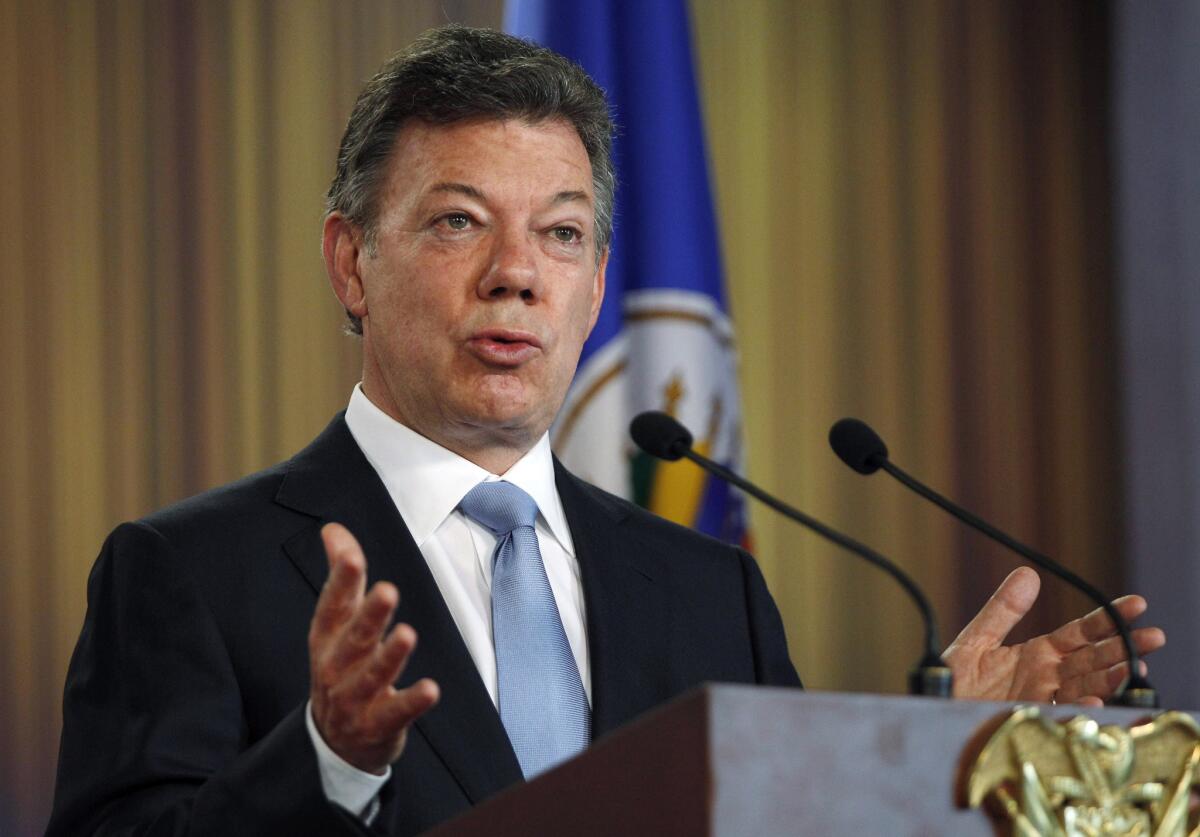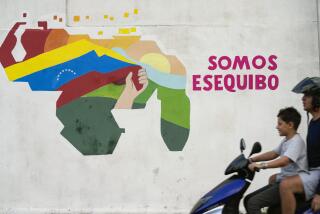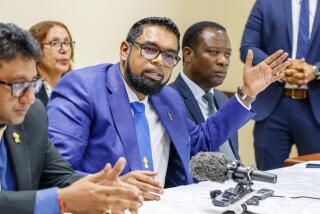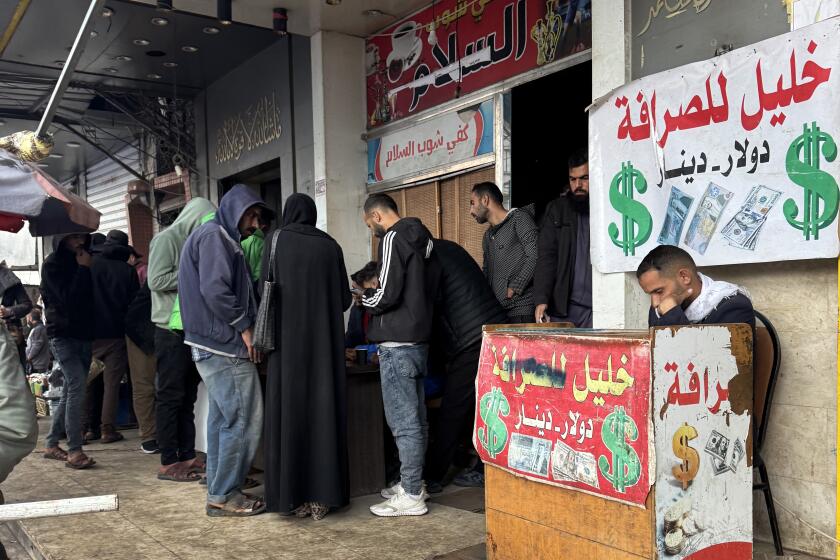Colombia, Nicaragua clash over oil exploration in disputed waters

BOGOTA -- Colombia’s foreign ministry on Tuesday said it had received no response from Nicaragua to its protest last week Nicaragua of the Central American country’s plan to auction off dozens of offshore oil exploration blocks in disputed Caribbean waters.
Last Wednesday, Foreign Minister Maria Angela Holguin wrote to Nicaragua that Colombia would “not accept nor permit” oil exploration in the disputed parts of a 7,000-square-mile area in the southwestern Caribbean.
The update came after Colombian President Jose Manuel Santos on Monday told a Bogota radio station that his government would soon disclose its strategy to maintain control of Caribbean marine territory that the International Court of Justice last year ruled belonged to Nicaragua.
“I can’t announce any concrete measure, what I can say is we are going to make a thorough explanation and a series of announcements about how we are going to proceed,” Santos said. His country is in consultations with national and international law firms on how to “protect Colombia’s interests,” he added.
Tensions between the two nations have ratcheted up since last November when the International Court of Justice in The Hague ruled in the long-simmering dispute over Caribbean islands and territory that have been under Colombian control since its 1819 independence.
While the court reaffirmed Colombia’s sovereignty over San Andres and other Caribbean islands, it said Nicaragua had the right to thousands of square miles of territory east of the 82nd Meridian, which has served historically as the two countries’ marine border.
Santos on Monday further fanned tensions by describing a Chinese-financed plan to build a new Pacific-Atlantic canal in Nicaragua as a “fairy tale.”
A spokeswoman for Colombia’s foreign ministry said she was not aware of any meetings between the two countries to discuss their differences.
Bogota’s El Tiempo newspaper reported last week that Nicaraguan President Daniel Ortega described Colombian claims to the disputed offshore territory as “false.” The territory in question contains prime lobster and shrimp fishing grounds and is thought to be rich in oil and gas deposits.
Santos has blamed previous administrations for even engaging in an arbitration of the territorial issue at the international court, and he and Holguin have intimated that the court’s decision was legally suspect. At the same time, Colombia has not announced a legal strategy to contest it, nor a concrete refusal to abide by it.
Nicaragua hosted an informational session in Managua last month for oil companies and foreign governments to discuss exploitation of its offshore Caribbean territory. Its mining and energy ministry also posted on its website a map showing dozens of available exploration blocks, including “a significant number” that were situated in what Holguin’s note said was Colombian territory.
In a speech last Thursday, President Santos warned Nicaragua not to mistake Colombian “discretion” with inaction, reiterating the implied threat contained in his foreign minister’s note.
Colombia maintained before judges at The Hague that its right to the disputed territory was codified in several treaties, the most recent of which was signed by both countries in 1928. Nicaragua said the treaty was signed under duress, during an occupation of the country by U.S. Marines.
ALSO:
Militants attack Indian consulate in Afghanistan
Terrorist leader’s order prompted diplomatic shutdowns
Egypt crisis: U.S. envoy meets with jailed Muslim Brotherhood leader
More to Read
Sign up for Essential California
The most important California stories and recommendations in your inbox every morning.
You may occasionally receive promotional content from the Los Angeles Times.









